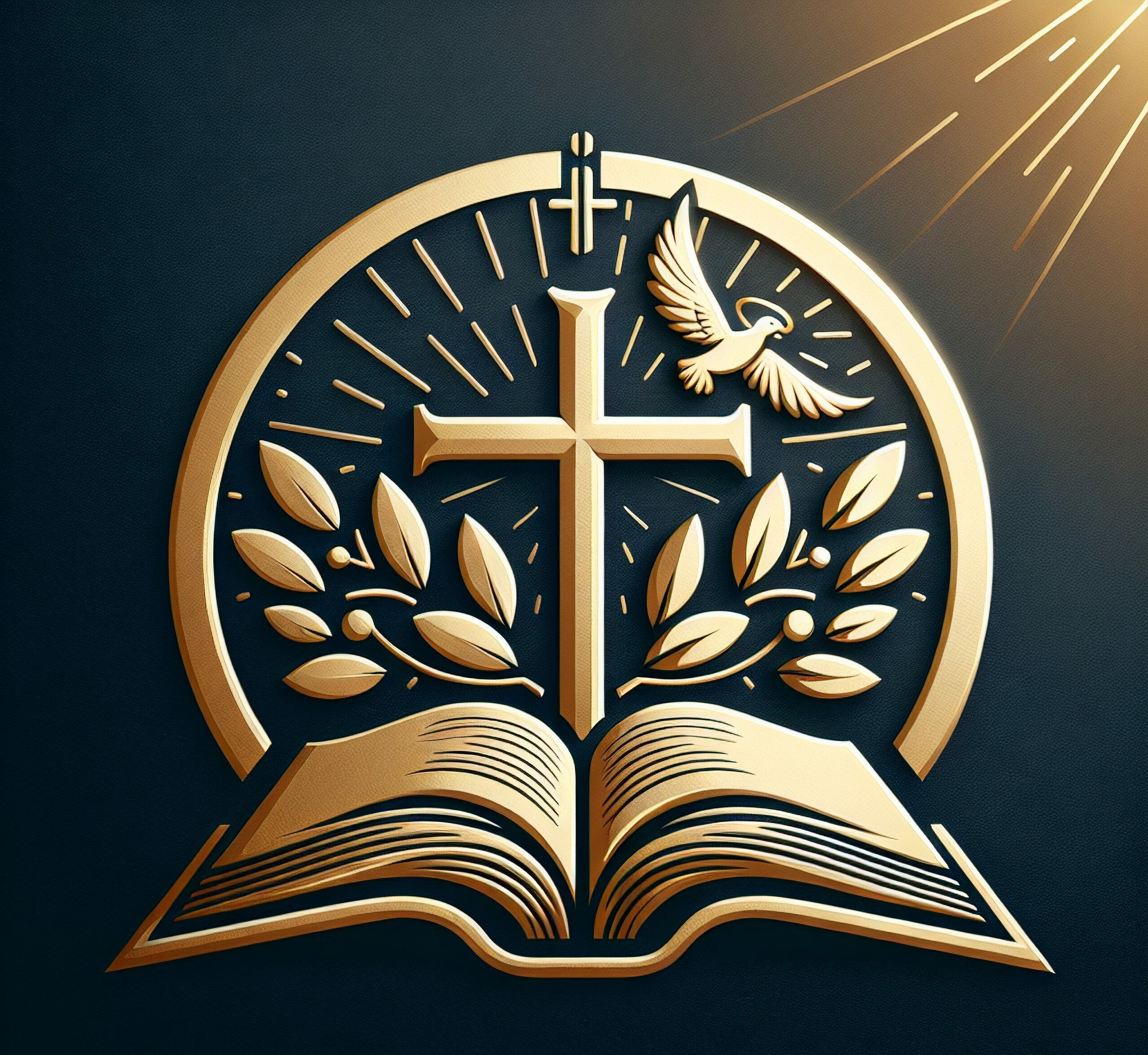
*This post contains affiliate links. If you make a purchase through these links, I may earn a commission at no extra cost to you.
When I started exploring my faith, I realized that building a robust understanding required returning to the source materials that have guided millions before me. In the case of Catholic teachings, two foundational texts form the cornerstone of belief and practice.
The first and foremost is the ‘Catechism of the Catholic Church.’ It provides not just rules, but reasons; not merely laws, but the love underlying them. Its pages are like a map to Catholic doctrine, offering clarity on everything from the sacraments to social teachings. For those who may be daunted by its scope, the ‘Compendium of the Catechism of the Catholic Church‘ offers a more concise version, perfect for anyone looking for a streamlined yet comprehensive guide.
Then there’s the Bible—specifically, the Catholic Edition. It’s not just a collection of historical texts; it’s the living Word, pivotal to Catholic life and worship. For a richer understanding, I suggest ‘The Ignatius Catholic Study Bible.’ Its commentaries and study guides make dense theological concepts accessible, illuminating the path laid by the scriptures with scholarly insights and reflections.
Understanding Catholic teachings is akin to building a house. Just as a house requires a firm foundation, so does our comprehension of faith. With these texts, you’ll feel grounded in the traditions and teachings that have stood the test of centuries. As we move to the next section, we will explore how these bedrocks of faith are further illuminated by the works discussing theology and doctrine.
Unveiling the Profound: Books on Theology and Doctrine
When my quest for wisdom deepens, I often turn to books that meld logic with belief. One such treasure is ‘Mere Christianity’ by C.S. Lewis, an insightful exploration into Christian theology. Its value extends to anyone seeking a structured, sensible approach to the principles of the Christian faith that resonate with Catholic teachings. Lewis’s book is not just an eloquent read; it is a journey through faith using the vehicle of reason. While Lewis was not a Catholic, the truths he unfolds are consistent with the core of Catholic doctrine and spark meaningful reflection.
The impact of ‘Mere Christianity’ lies in Lewis’s ability to distill complex ideas into clear, convincing arguments. It’s fascinating to pinpoint passages that elucidate beliefs Catholics hold dear. I recommend ‘Theology for Beginners’ by Frank Sheed to readers who find their curiosity piqued by Lewis’s work. Sheed’s book dives even deeper into Catholic theology, offering rich explanations that satisfy the intellectual and the spiritual seeker alike.
For a narrative that combines doctrinal clarity with a personal touch, ‘Rome Sweet Home’ by Scott and Kimberly Hahn is exemplary. Here, the authors recount their conversion to Catholicism, with the book serving as both a memoir and a study of faith. Its personal nature makes it relatable, and the doctrinal explorations are captivating. The Hahns’ stories make Catholic teachings accessible and, most importantly, relatable. For an even fuller understanding of the Catholic Mass, I direct readers to Scott Hahn’s ‘The Lamb’s Supper’, which reveals the profound connections between the Mass and the Book of Revelation.
Linking these thought-provoking works to the textured fabric of spirituality and devotion, I’ll next introduce classics in Catholic devotional literature. These books provide pathways to personal sanctification through time-tested wisdom and offer a more intimate connection with divine teachings.
Nurturing the Soul: Books on Spirituality and Devotion
Turning the page from the robust dialogue of theology, I aim to soften the tone with books that touch the heart through spirituality and devotion. These are the works that speak to the daily walk of faith, the quiet moments of prayer, and the intimate relationship each believer is invited to cultivate with the Divine.
First on this soul-nourishing list is ‘The Imitation of Christ’ by Thomas Kempis. This masterpiece has stood the test of centuries as a beacon of Christian devotion. Kempis invites readers into a deeper communion with God through teachings on humility and obedience that resonate deeply with one’s personal life. For eager souls seeking to live sacramentally and to elevate the mundane into the holy, this text is indispensable.
If you’re looking to navigate these timeless teachings with modern application, ‘Introduction to the Devout Life’ by St. Francis de Sales offers a road map. It is practical yet profound, suitable for those starting their journey or seeking a refresh in their spiritual routine.
I also put forth ‘Story of a Soul’ by St. Thérèse of Lisieux, a touching autobiography that lays bare the simplicity and power of ‘The Little Way.’ Through this approach, St. Thérèse illustrates a life of surrender to God’s love and a trust in His mercy that doesn’t require grandiose deeds, but a heart full of faith and love.
For those drawn to the depth of Carmelite spirituality, ‘The Way of Perfection’ by St. Teresa of Avila provides further insights. Here, you’ll find guidance on prayer and contemplative practices that have shaped the lives of many saints and continue to transform believers today.
Let these works be the gentle hand that guides you into a personal encounter with holiness, setting the stage for a robust defense of the faith which I will discuss in our next section.
Championing the Faith: Apologetics and Defense of Catholic Belief
When it comes to faith, questions are as natural as the belief itself. In the pursuit of understanding and defending Catholic teachings, it’s essential to approach common misconceptions and challenges with a well-informed perspective. That’s where the discipline of apologetics comes into play.
The books I’ve suggested in this section are more than just texts; they’re tools for intellectual and spiritual enlightenment. Let’s take a closer look at two significant works that have bolstered the faith of many, offering clarity and conviction in the face of skepticism.
‘Catholicism and Fundamentalism’ by Karl Keating stands as a bastion against the tide of misconceptions surrounding the Catholic Church. Keating’s book is an impressive amalgamation of history, scripture, and logical argument that addresses and refutes common criticisms levied against Catholic doctrines. For those who wish to fortify their knowledge and become adept at navigating such discussions, this book is invaluable. And if you’re seeking to continue honing your apologetic skills, ‘Answering Atheism’ by Trent Horn offers a modern approach to countering atheistic claims with reason and respect.
On the other side of the apologetic spectrum lies a journey from doubt to devotion, as depicted in ‘Born Fundamentalist, Born Again Catholic’ by David B. Currie. Currie’s narrative is a testament to the transformative power of truth and the peace that comes with finding one’s spiritual home. The book meticulously goes through doctrinal obstacles he encountered and presents a compelling case for the Catholic faith. To further explore the confluence of conversion and conviction, consider diving into ‘Crossing the Tiber’ by Stephen K. Ray, which provides another enlightening perspective on embracing Catholicism.
Now, as we wrap up our journey through various literary resources designed to deepen our understanding of Catholic teachings, remember that reading is just one step in the grand voyage of faith. It’s through reflection, discussion, and living out these teachings that their true depth is realized. Each book serves as a conversation starter with oneself, with others, and with God.


Although I am a Christian, I am not a Catholic, but was brought up in an Anglican/Presbyterian family. But as I now live in Italy, which is a Catholic country, I have been exposed to the Catholic faith in several ways, so found this post to be very interesting.
You mention several books, without links provided, so it is difficult to decide which might me best for a non-Catholic to decide which one is the best to explore the Catholic faith. It would be helpful to know your suggestion for the best recommendation for a non-catholic to start. Thank you.
Thank you for your kind comment. In my journey from a Baptist and Evangelical background to the Catholic faith, I discovered that Catholics are indeed Christians, with a lineage tracing back to the earliest followers of Christ. Having converted to Catholicism over 20 years ago, I am continually learning about this deep and rich faith.
I apologize for not providing the book links earlier; this oversight has now been corrected. Additionally, I have several posts on the history and foundation of the Catholic Church that may interest you. I hope my post has been informative, and I warmly welcome any questions or further comments you may have.
This is a fantastic and comprehensive list of books to deepen one’s understanding of Catholic teachings! I’m especially intrigued by your recommendations of “The Ignatius Catholic Study Bible” and “Mere Christianity” by C.S. Lewis. They seem like essential reads for both new and experienced believers. Your analogy of understanding Catholic teachings to building a house is spot on and very relatable. I’m curious, have you found any particular book from this list especially transformative in your own spiritual journey? And how do you balance reading these doctrinal texts with devotional literature? Thank you for sharing these insights!
Thank you for your feedback! I’m glad you liked the list of books. Both “The Ignatius Catholic Study Bible” and “Mere Christianity” are great choices for deepening your understanding of Catholic teachings.
For me, “The Imitation of Christ” by Thomas à Kempis has been especially transformative. It really helped me grow in humility and devotion.
When it comes to balancing doctrinal texts with devotional literature, I find that reading both is really beneficial. Doctrinal books give you a solid understanding of Church teachings, while devotional books help nurture your personal relationship with God. Mixing both types of reading helps you grow both intellectually and spiritually.
Thanks again for your interest and thoughtful questions!